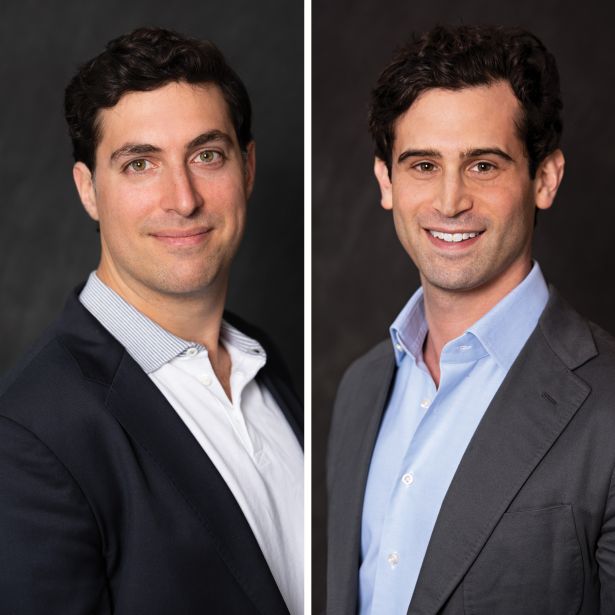
David Eisenberg and Ryan Orley
Founding partner and managing partner at Zigg Capital

“Zigg” is an abbreviation for the ziggurat, one of humankind’s first architectural achievements: an attempt to reach the heavens through physical real estate — an appropriate metaphor for a venture capital firm. It’s also a reference to the zigzag trajectory.
“Startups have a zigzag nature with a lot of pivots, and typically where you make the most amount of money in startups is when you’re betting on something that the rest of the market is not,” Dave Eisenberg said.
As such, while it’s a particularly volatile market at the moment, and transactions — and investments — are down, Zigg is pushing ahead. “The quality of the investments that we’re making today is among the highest I’ve seen in my career,” Eisenberg said.
Still, Eisenberg describes this moment in time as “a more careful and cautious period for the entire venture industry, especially the tech industry after some of the excesses of 2020 and 2021.” As a result, much of what he’s seeing is defensive financings that ensure companies have enough capital to reach profitability within their operations. In that vein, the market has also shifted toward private equity-style underwriting as opposed to the venture capital-style underwriting of the past 15 years, which focused on explosive growth.
“That’s not the focus of most investors today,” Eisenberg said. “It’s around the preservation of capital — and what that creates is exceptionally good investment opportunities for investors who are willing to invest in out-of-favor sectors.”
Case in point: Zigg just wrote a $28.5 million Series B check to Texas-based landlord insurance company Steadily, one of the fastest growing companies in its portfolio.
As the year draws to a close, Eisenberg said he’s expecting an opportunity to participate in the recapitalizations of some companies, as the disconnect between 2021 and 2023 valuations are too big to get an extension investment round. So entire companies will need to be restructured.
“What’s going to make [the next year] such a good investment vintage is that the power was in the hands of the companies for a long time, but the power is now really in the hands of the investors,” he said.



